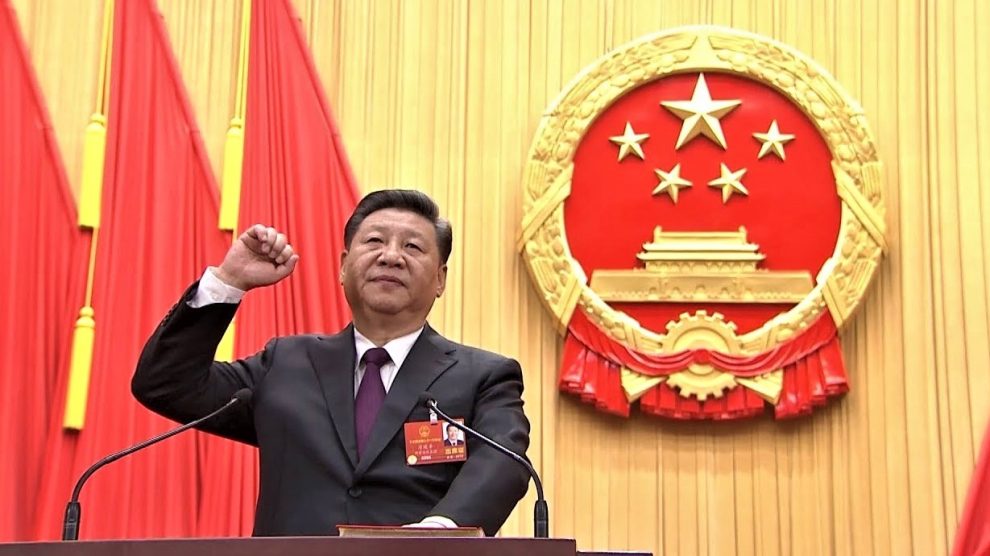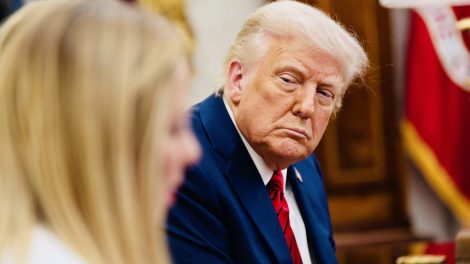China pressures Italy ahead of Biden-Meloni talks. Tomorrow (Thursday, June 27), the United States President will welcome the Italian Prime Minister at the White House. The two will surely discuss Beijing’s role on the world stage and how to deal with it – which, for Rome, means deciding on the renewal of its Belt and Road Initiative membership.
- PM Meloni is leaning towards dropping out of the BRI, and her team is mulling over the right time and way to tell China – which, in turn, has been on the information offensive to convince Italy to stick to its project.
A barrage of propaganda. Over the past few hours, the Chinese State outlet Global Times published an editorial, an interview with the Ambassador to Italy, Jia Guide, and an external commentary on the matter. The Chinese Foreign Ministry also commented on the issue, while the Communist Party’s head of international relations gave an interview to Italy’s leading economic paper.
- All this messaging seems to be targeting Italy as well as (and perhaps even more) China, lamenting Italy’s impending step backwards. Which is interesting, considering that President Biden and PM Meloni will discuss superpower competition rather than the BRI (which does not involve the US directly).
- Below is a more detailed and organised overview of the CCP’s propaganda.
The Global Times’ takes. On Sunday, PM Meloni explained she would not bring up the BRI in her talks with President Biden and noted that the latter never asked what she intended to do about it. That “denial” was “a de facto acknowledgement that the US is putting pressure on Italy to withdraw,” argued Wang Yiwei, Director of the Institute of International Affairs at China’s Renmin University, in a Monday piece in the Global Times.
- The piece then dismisses PM Meloni’s claim that “one can have good relations, even in important areas, with Beijing without these necessarily being part of an overall strategic plan” and dredges up earlier words from Ambassador Jia about the “potential negative impacts” of exiting “a platform that has demonstrated mutual political trust and improved the strategic level of cooperation between the two countries.
- That same day, another piece warned that it is “not acceptable or appropriate” for the US and Italy to discuss the issue.
- A third piece by Deborah Veneziale, introduced as an “American journalist based in Italy,” explained why Rome should not trade the BRI’s economic benefits to follow the US’ geopolitical lead.
- For context, Ms Veneziale had given the Global Times an interview in November contrasting the US – “a country that was originally built on slavery and genocide” – and China’s “peaceful rise”, suggesting that Italy wanted to renounce the BRI membership because of the former.
The ambassador’s words… Ambassador Jia was the subject of an “exclusive” interview with the Global Times. He begins by rejecting claims that BRI cooperation is “futile” as “baseless, as the facts speak for themselves.” The numbers, however, say otherwise.
- Mr Jia also mentions the agreement between STMicroelectronics – an Italo-French chipmaker – and Sanan Optoelectronics, which has the Chinese state as a majority shareholder, to build a joint venture (Rome is slated to vet the operation).
… and more diplomatic speak. Two more Chinese diplomats also spoke up on the issue. On Tuesday, Chinese Foreign Ministry spokesman Mao Ning said at the daily briefing that “it is in the interest of both sides to further exploit the potential of our cooperation.” And on Wednesday, Liu Jianchao, head of the CCP’s international relations department – who had toured Italy in June to lobby political parties and companies – granted an interview to Il Sole 24 Ore, Italy’s leading economic paper.
- “Considering the historical legacy” between Rome and Beijing, said Mr Liu, “inertia must be overcome, and new strategic content must be attributed to the China-Italy relationship.” The two must “form new consensuses” through “new political dialogues,” he remarked, intensifying exchanges with institutions, local authorities’ parties, and coordination on the international agenda and within multilateral organisations.
- Words spoken, not by chance, while Rome is at the centre of global attention for the Development and Migration Conference and the UN Food and Agriculture Organisation summit.
- Areas of cooperation “to be strengthened” include the manufacturing industry, clean energy and aerospace, added Mr Liu, expressing his hope that “Chinese companies in Italy will be treated fairly” – a victimising rhetoric that implicitly criticises Rome’s moves to limit the Chinese government’s influence on domestic companies, which conveniently forgets the many reports on the lack of reciprocity for Western companies in China.




